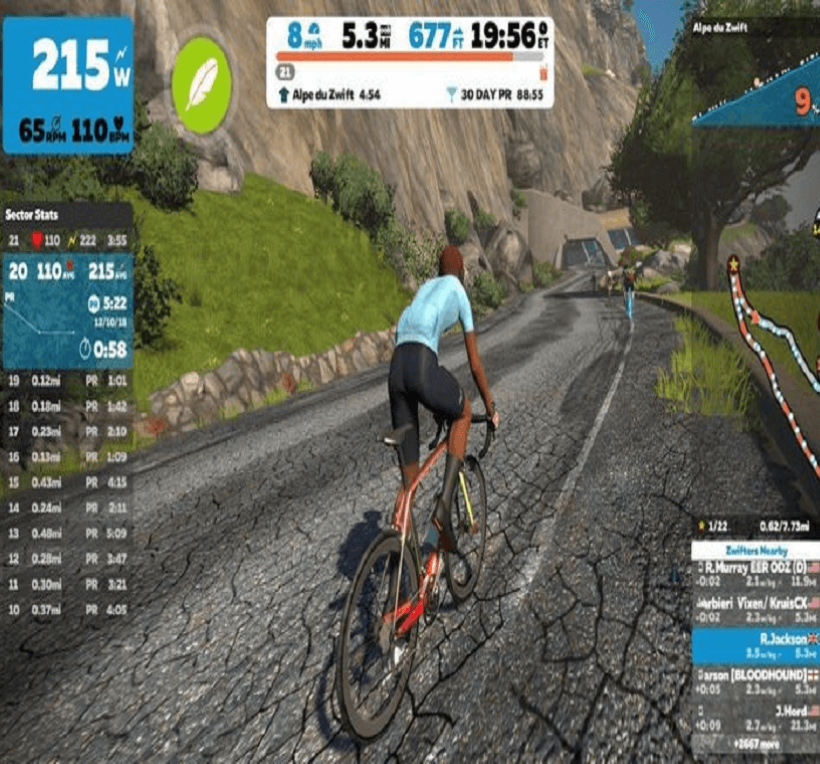

The Golden Opportunity: Early-Stage Investment in Sports Tech from Investors POV
3 min.
The Golden Opportunity: Early-Stage Investment in Sports Tech
Introduction
President Trump begins his second term on January 20th 2025. Much speculation and pronouncements have been made, his administration pledges to roll back regulations, reduce restrictions on mergers and acquisitions (M&A), and promote U.S. business growth. All this is in a promise of significant changes for early-stage investors and startups alike. With a focus on creating more favorable conditions for innovation, these policies could catalyze a new era for U.S.-based startups by allowing them to scale faster and seek strategic partnerships. This environment is especially promising for sports tech startups and their investors, as larger companies now have the green light to acquire or merge with smaller, innovative firms at a much faster pace than ever before – a trend that could bring a wave of lucrative exits for early-stage investors.
The sports tech industry, which is thriving thanks to rapid advances in AI, wearables, fan engagement, and connected devices, is at the intersection of this opportunity. From relaxed M&A regulations to favorable startup valuations, here’s why early-stage investors should take advantage of this golden age for sports tech investment.
Promising Exit Pathways with Increased M&A Activity
Historically, one of the biggest concerns for early-stage investors has been identifying clear exit strategies. In the past, IPOs and acquisitions have been cyclical, but with the Trump administration’s drive to facilitate M&A, this challenge could become less daunting. Reduced barriers to large-scale mergers and acquisitions open a host of opportunities for sports tech startups to merge with bigger corporations, thereby increasing investor liquidity. A prime example of this trend is the acquisition of Stats Perform, a leader in sports data and analytics, by Vista Equity Partners for $1.9 billion. Early investors saw a substantial return on investment, which also underscored the market’s demand for sophisticated sports data solutions.
The Trump administration’s pro-business stance and relaxed M&A restrictions will likely encourage more acquisitions like Stats Perform’s. Take Catapult Sports, a pioneer in performance-tracking wearables, which went public in 2014 and saw its valuation reach approximately $600 million. Investors in Catapult enjoyed the opportunity to exit through an IPO, but under new policies, more sports tech companies could secure M&A offers, providing multiple exit options.
Emerging Technologies Fueling Growth and Competitive Advantage
As the sports industry embraces technology, advancements in AI, VR, IoT, and wearable tech are creating transformative opportunities for startups. Investors now have the chance to back sports tech companies with high growth potential. Companies like Hudl, a video analysis tool that scaled from youth sports to elite professional teams, highlight the potential of early-stage investments. Hudl’s acquisition of Wyscout, a scouting and analytics platform, allowed the startup to expand its offerings and deliver robust returns to its early investors.
Wearable fitness startup Whoop, known for providing personalized fitness and health insights to athletes, raised its valuation to $3.6 billion in 2021, demonstrating the appeal of AI-driven, data-focused technologies. This surge in valuation underscored the demand for health-related wearables and provided strong returns for initial investors. With policies that aim to reduce regulatory hurdles, tech startups in sports and health are better positioned than ever to innovate and capture market share, benefiting both companies and investors.
Favorable Valuations and Expanding Funding Channels
Valuations for early-stage startups in sports tech remain favorable, offering investors opportunities to secure equity at attractive prices. The Trump administration’s emphasis on deregulation and fostering U.S.-based growth is expected to expand angel and venture capital funding, while syndicate investments and angel groups have made it easier for investors to diversify portfolios. This environment is particularly beneficial for high-potential startups like Zone7, which uses AI to analyze player performance and predict injuries.
Such advancements are only part of the broader trend where investors can maximize exposure across multiple promising startups. Tonal, for example, developed an innovative connected fitness product that raised over $450 million and reached a valuation of $1.6 billion by 2021. This high valuation and successful growth reflect the rising appetite for tech-driven fitness solutions, a promising sign for investors looking to capitalize on favorable conditions for U.S. innovation.
Growing Fan Demand and Resilient Sports Tech Ecosystem
Despite economic challenges, the sports tech ecosystem has shown remarkable resilience, with global sports media rights valued at nearly $56 billion. This demand has not only increased fan engagement but also heightened expectations for interactive, personalized experiences. Sports tech startups that cater to these trends, like DraftKings, which leveraged sports betting legalization to expand its offerings, have been able to scale significantly. DraftKings’ IPO in 2020 provided a clear exit for investors and highlighted how the right startup can pivot to capitalize on regulatory changes and consumer trends.
As the U.S. regulatory climate becomes more favorable for innovation, sports tech companies can pursue scalable business models with reduced friction. Fan-focused companies, such as Tonal and DraftKings, reflect how adaptable startups can deliver robust returns by catering to evolving fan interests.
Why Sports Tech Startups Are Unmissable in This Golden Age
Sports tech startups aren’t just riding a wave of fan demand, they’re solving core challenges in performance analytics, injury prevention, and fan engagement. By addressing high-impact areas with scalable tech, companies in sports tech are positioned to benefit from a pro-business U.S. policy landscape that favors growth and acquisitions. The Trump administration’s deregulatory stance and promotion of U.S. industry are creating conditions that make it easier for sports tech companies to scale, partner, or exit. For instance, the crossover between sports and health tech has broadened the growth paths for companies like Whoop and Zone7, making them attractive targets for acquisition.
Conclusion: Seizing the Golden Age
In summary, the Trump administration’s pro-business policies are creating an ideal environment for early-stage investors in sports tech. With regulatory support for M&As, high-growth startups in wearables, AI, and fan engagement have more pathways to scale or be acquired. Success stories like Stats Perform, Catapult, Hudl, Whoop, Tonal, and DraftKings demonstrate that sports tech startups can deliver impressive returns and align with the administration’s goal of strengthening U.S. businesses.
For investors, now is the time to engage with sports tech startups. By investing in these innovative companies, investors are not only capitalizing on a high-growth sector but also contributing to the next wave of U.S. business success, where technology and engagement intersect to create unforgettable fan experiences and new business models. With favorable valuations, relaxed regulations, and increased M&A activity, this truly is a golden age for sports tech investment.
One More Thing –
Don’t miss this unique opportunity to be part of the sports tech revolution! Startup Founder looking to raise? Join us at the Investors Event on Thursday, December 12, to connect directly with some of the most promising investors in the industry and discover cutting-edge, scalable solutions poised to redefine the sports landscape. Secure your spot HERE and be at the forefront of innovation in sports tech.




Comments